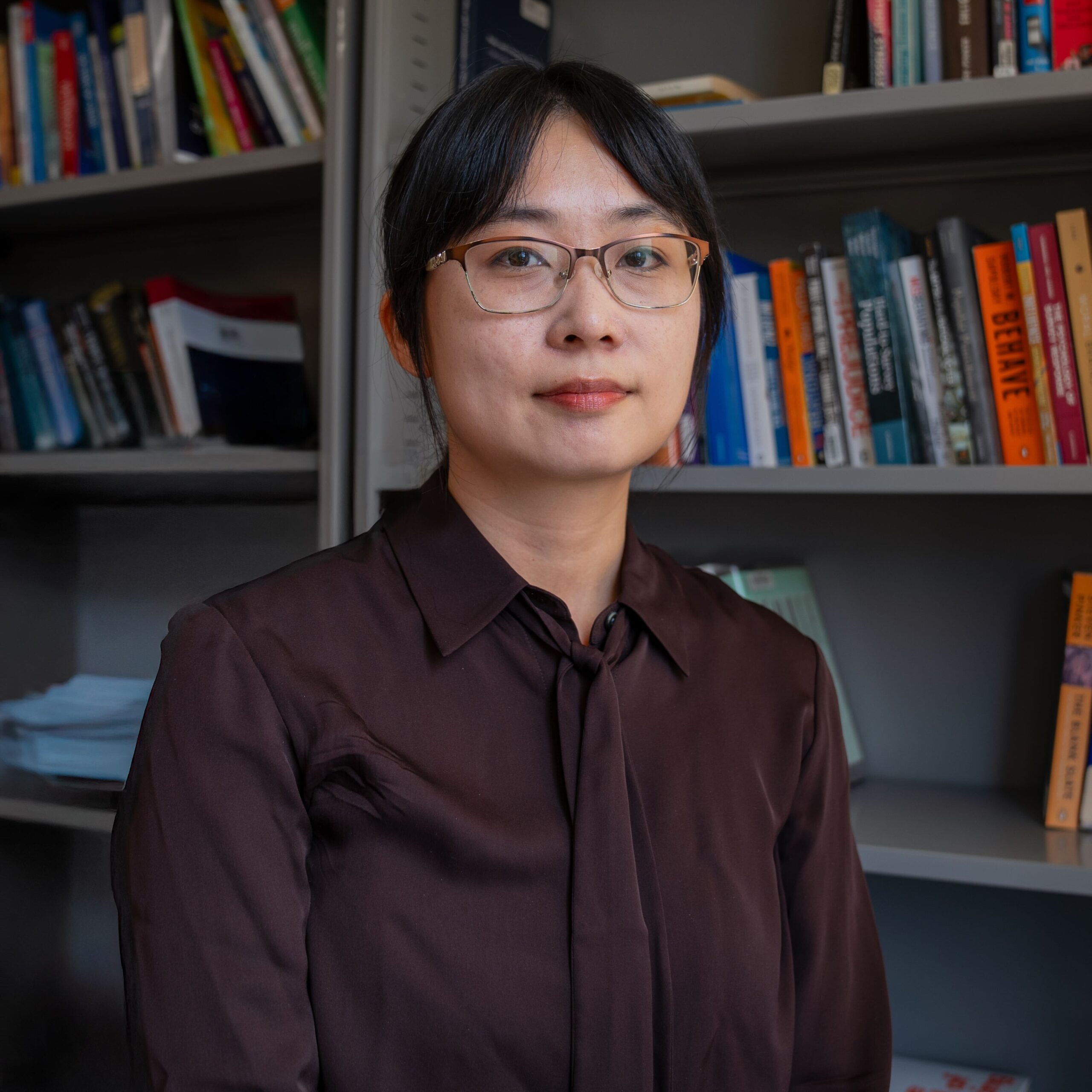KINGSTON, RI – Nov. 6, 2024 – Assistant professor in criminology Luzi Shi has been awarded the American Society of Criminology’s Division of Public Opinion & Policy Young Scholar award. She will receive the prestigious award in person next month, along with a feature in the flagship journal Criminology, to be published in February 2025.
Professor Shi is the criminal justice and criminology department’s second faculty member to win an ASC Division Young Scholar Award, the first being Chelsea Farrell. Professor Farrell was awarded the Robert J. Bursik Junior Scholar Award in 2022 for her published work on stop and frisk policing.
The Young Scholar Award recognizes public research contributions from members within 6 years of receiving their doctorate, according to the American Society of Criminology. Professor Shi’s research focuses on understanding how stereotypes, misperceptions, and negative emotions shape criminal behaviors and crime control policy preferences.
“My research really looks into the predictors of people’s biases and stereotypes and how that may pose a social influence on criminal justice policies,” Shi said. “And in what way can we actually change some of people’s misperceptions? In doing so, many of the biases and stereotypes are directed at marginalized, minoritized, and disadvantaged social groups.”
Professor Shi was drawn to this area of research due to her experience as an international student in grad school. Moving to the states to continue her academic career, Shi felt a high level of fear toward crime and wanted to understand the social influences that made her feel this way. This research helped Shi develop an understanding of the relationship between the media and fear of crime.
“I’m always fascinated by how people form their own opinions and guard their own opinions, even though there is misinformation [and] misperceptions…driving those opinions,” Shi said. “It’s also very interdisciplinary in nature that, it also taps on topics of psychology, political science, communications. So I also have the opportunity to read literature from different fields.”
Criminology is the study of crime and criminal behaviors. Public opinion shapes this science by helping people understand the actions behind criminal offenders. The current criminal justice system stands by the theory that those who commit crimes do so from a “rational” place as a means to seek benefits from said crimes. However, public opinion research disproves this, showing that criminals are not 100% rational.
“They also have biases, heuristics,” Shi said. “They don’t really understand the punishment. So, it doesn’t really make sense to always increase the criminal punishment to the maximum level. We [can] actually use some tricks to deter people from committing and engaging in delinquent behaviors.”
Criminal justice works hand-in-hand with criminology, but is an entirely different field of study. Criminal justice is the understanding of social institutions in the criminal justice system such as law enforcement, correctional courses, and the judicial system. The criminal justice system as a whole is heavily affected by public opinion, relying on the public’s political decisions to drive the formation of policies.
“It’s very important to recognize how judges, police officers, correctional officers, all of those criminal justice practitioners all hold their biases and stereotypes,” Shi said. “And that could take a toll on the society, especially if they all hold consistent attacks against certain types of people. So it’s really important to understand all of those misperceptions.”
Biases and stereotypes towards certain groups of people are persistent and have been for decades. To understand what people actually want to change in society is to take a step forward in ending these biases. Keeping the public educated and providing evidence and accurate information will help sway the public solely off of using gut instincts and biases to form policies and political decisions.
This article was written by Erin Malinn, class of 2028.

